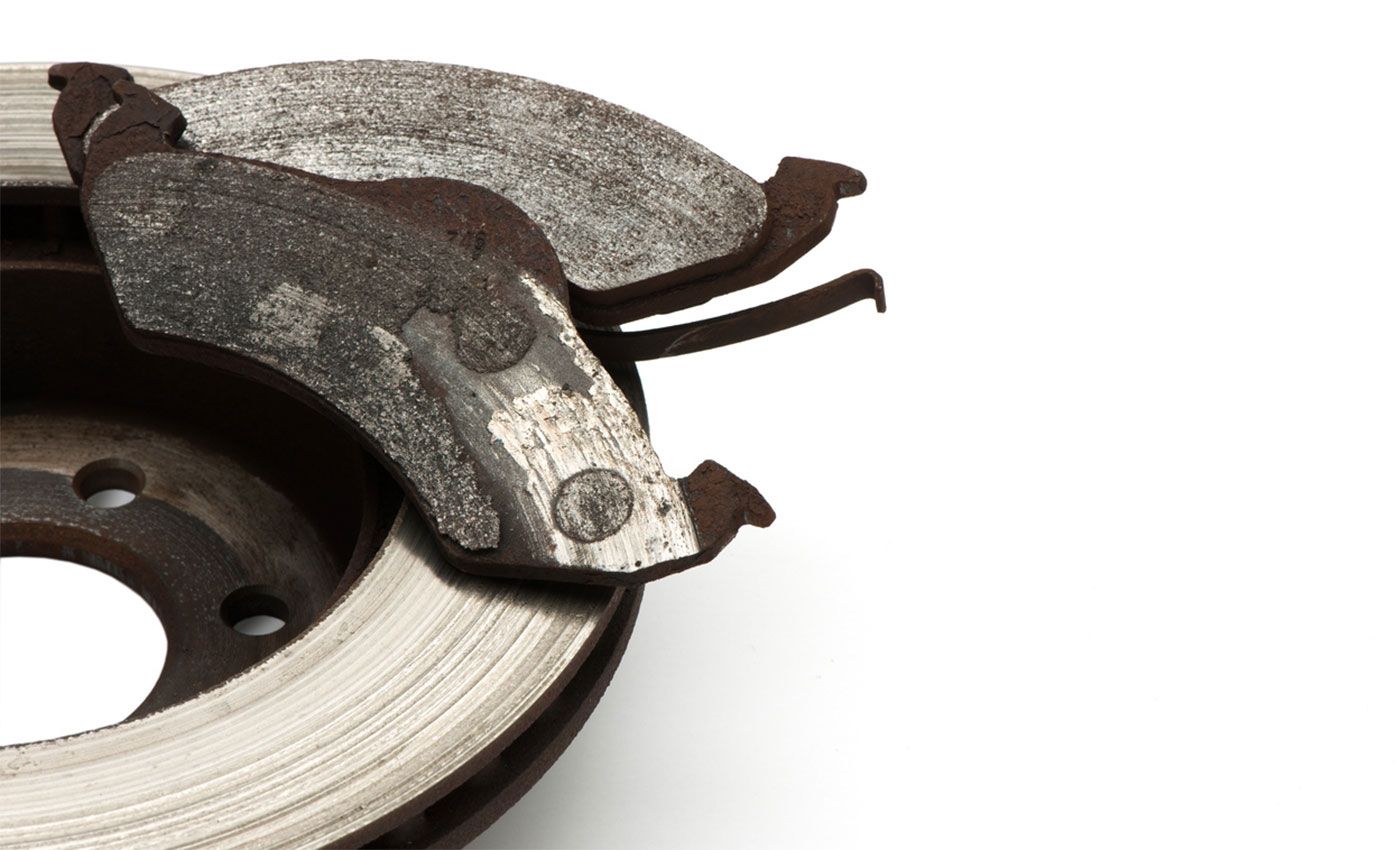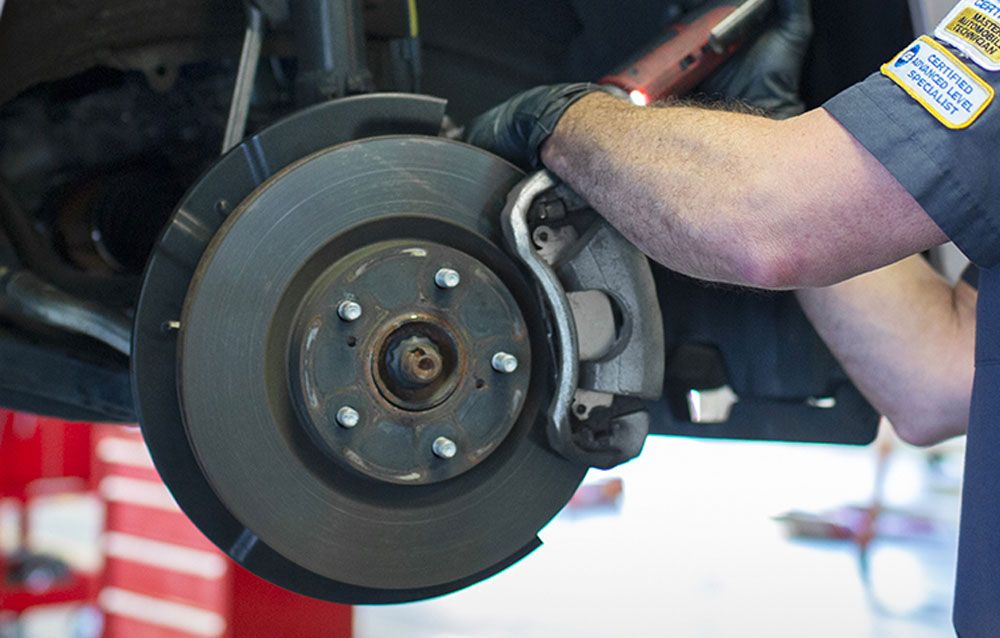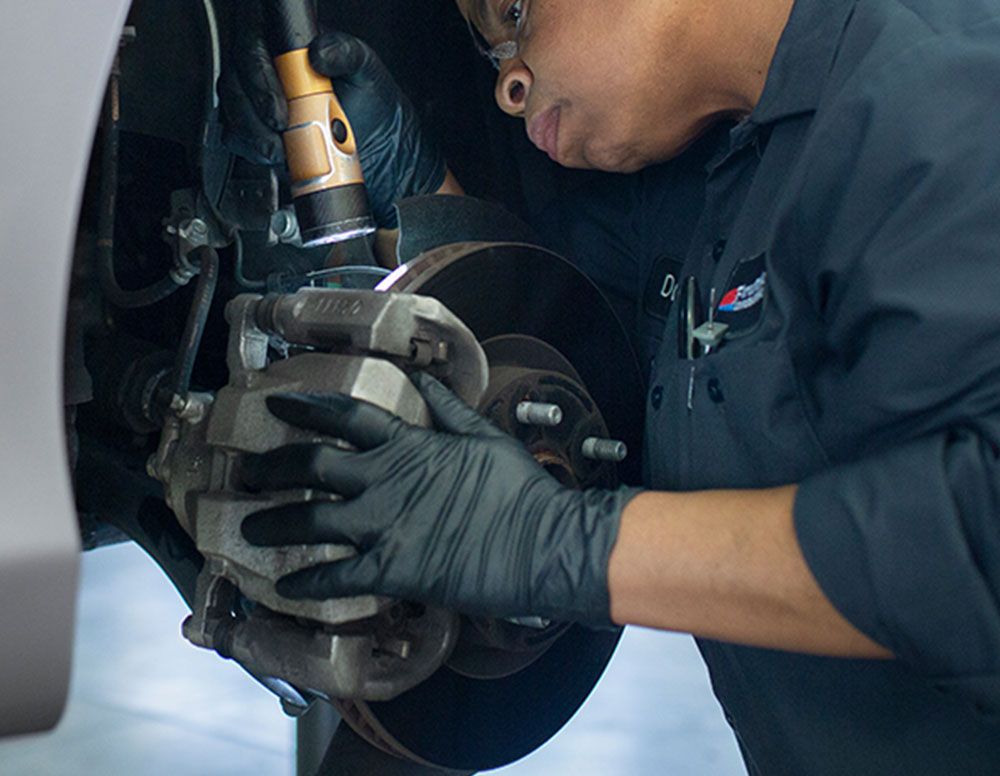
All or One: Should You Replace All Brake Pads At Once?
Can you replace just one set of brake pads? Answer that question and more as you learn why braking system maintenance is crucial for safety and performance.
Read More
Your brakes are the most important safety mechanism on your car, helping you control your vehicle and avoid collisions on a daily basis. That means it’s critical for drivers to understand when to change brake fluid and take other preventative steps to keep brakes in good working condition. If you’ve got questions about your brake system, we’ve got answers to common questions below, including how often to change brake fluid, what bleeding brakes means, symptoms of disc brake issues, and more.
Searching for “free brake inspection near me”? Detailed brake inspections at your local Firestone Complete Auto Care are always free of charge.* We even offer regular brake service coupons, so save yourself time and money by scheduling a service appointmentat the first sign of brake issues. And while you're in, ask your Firestone Complete Auto Care technician about a Complete Vehicle Inspection to help you stay on top of maintenance and keep small issues from becoming big repairs down the road. *Brake service costs extra.

Although we recommend checking your brakes at least once a year, the following symptoms may indicate that you should have your brakes inspected immediately:
If you are experiencing any of the above, bring your car in for a brake check.

If you're in need of a brake service and inspection, look no further than Firestone Complete Auto Care, where we offer free brake inspections* year-round. Bring in your vehicle, and our Tire and Auto Service Professionals will perform a free brake inspection service that includes:
During your complimentary inspection, we'll determine whether your vehicle needs any further brake service, such as:
*Brake service costs extra.
Does brake fluid need to be changed? The answer is yes! Over time, brake fluid starts to lose its corrosion protection properties. And since many brake components contain copper, this can prove quite dangerous for your brake system. When moisture seeps into a system with bad brake fluid, corrosion to these copper components becomes more likely. In effect, you may experience reduced brake performance, premature wear, and potential damage to the entire system.
The technicians at Firestone Complete Auto Care can test the copper levels in your brake fluid to determine if it is no longer protecting the system from corrosion. When the copper content levels in your brake fluid are 200 PPM (parts per million) or more, industry standards (AMRA) suggest a brake fluid exchange.
It's also worth checking brake fluid levels as well. Low brake fluid levels most often indicate worn brake pads, but low levels can also signify damaged brake lines or a leak in the system. Without sufficient amounts of brake fluid, you may need to press the brake pedal down further to activate the brakes, which may reduce braking effectiveness. That’s why it’s important to regularly inspect brake fluid levels in the master cylinder and check your owner’s manual for manufacturer-recommended fluid change intervals.
If you’re not sure whether your brake fluid should be exchanged, have your brakes inspected free of charge at your nearest Firestone Complete Auto Care. During your brake inspection, a vehicle service professional will inspect and test your brake fluid to determine if it needs to be changed.
Don’t worry; there’s no blood involved! Bleeding your brakes becomes necessary when air bubbles get into your brake fluid line. This can be caused by a leak, not enough brake fluid in the master cylinder, or simply from having work done on your brakes. If air makes its way into your brake fluid line, it causes your brake pedal to have a soft, spongy feeling when you press down on it.
When you notice a spongy or squishy feel to your brake pedal, you’re likely in need of brake bleeding — which involves a technician using bleeder screws on your brake calipers or wheel cylinders to remove any air bubbles that may have entered the system.
Don’t put your safety at risk by skipping critical brake maintenance. Have your car’s brakes inspected regularly and at the first signs of brake issues. Schedule your brake service or a free brake inspection today! Most stores are open nights and weekends.

Can you replace just one set of brake pads? Answer that question and more as you learn why braking system maintenance is crucial for safety and performance.

It’s terrifying when your brakes lock up. Learn the potential causes of brakes locking up while driving, how to prevent it in the future, and how to react when they do.

Brakes not slowing you down as they used to? Don’t let the unthinkable happen! Discover the common causes of brake lag, their symptoms, and how to resolve them!